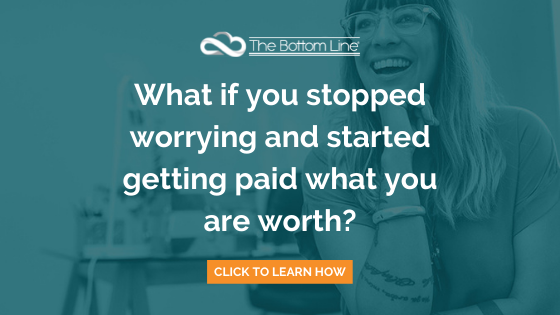For many business owners, the end game is ultimately to cash out of their business. Some may decide to focus on their next business adventure. Other business owners may be ready for early retirement or to relax by the beach. Either way, selling your online business is a leap of faith.
We applaud these business owners and stand by them through the entire process.
Some questions that first come to mind when making this decision to sell is “When is the right time?” or “How do I know my business’ value?”.
For these questions, there is not always a clear-cut answer. As CPAs, we love cold, hard facts in the form of numbers. Unfortunately, not every business valuation is created equal.

Clean-up Those Financials
To be able to figure out the worth of your business, you must get your financial statements in order first. Messy or inaccurate financial statements can raise red flags for potential investors.
To legitimize your business, an accounting system like Xero is a helpful, potentially necessary tool. Xero will allow you to create clean financial reports where you are able to toggle the inputs to view comparative data.
Review your Assets + Liabilities
The next step is to review your assets and liabilities. These should be included on your business’ Balance Sheet.
Make sure to consider intangible assets. Unlike TANGIBLE assets like property or equipment, INTANGIBLE assets are often overlooked. For most online businesses, these can include the following:
Trademarks: As a general rule, the way to value a trademark is the cost of security it including legal fees.
Social Media Handles: It is not typical for brands to include their social media handles as an intangible asset on their balance sheet. Given the huge influence of social media on today's society, this may change in the future. However, a social media handle that drives traffic to your product will definitely have some intrinsic value to a buyer.
Social media assets can prove more value if a brand can demonstrate the strength it plays in positive trending conversations and sales conversions. Another big factor in a social media platform’s value is to drive traffic to your website, which can be monitored through data plug-in tools.
Web URL: The website value is attributed to the purchase price that a seller would be willing to buy that URL. You can use tools like Estibot to develop a basis for that valuation.
Determine Your Earnings Multiple
Armed with an Income Statement and a Balance Sheet, you can then begin to calculate some valuation metrics on your business. Commonly used for small businesses, earnings multiples may give you a good idea of where to begin negotiations.
Your earnings multiple can be anywhere between 2 and 10 times your business’ profit (net income) excluding interest and taxes. To be worthy of a 10x earnings multiple, your business must have a proven history of profit and a strong value proposition to a potential investor. Commonly, this will linger somewhere between 5 and 7 for a well-established business.
The Bottom Line
One other statement will always hold true. The value of your business is what the market is willing to pay. It's not uncommon for your perception of your own company to be out of line with the value deemed by the market. That’s completely normal and to be expected.
The right time and the right buyer can bring your perceived value closer to the selling price. Having said that, there's no harm in having a number in mind when beginning negotiations with a potential buyer.
Lastly, it is a good idea to have a TRUSTED ADVISOR with FINANCIAL EXPERTISE. Selling your business is a large undertaking that you should not have to take on alone.

